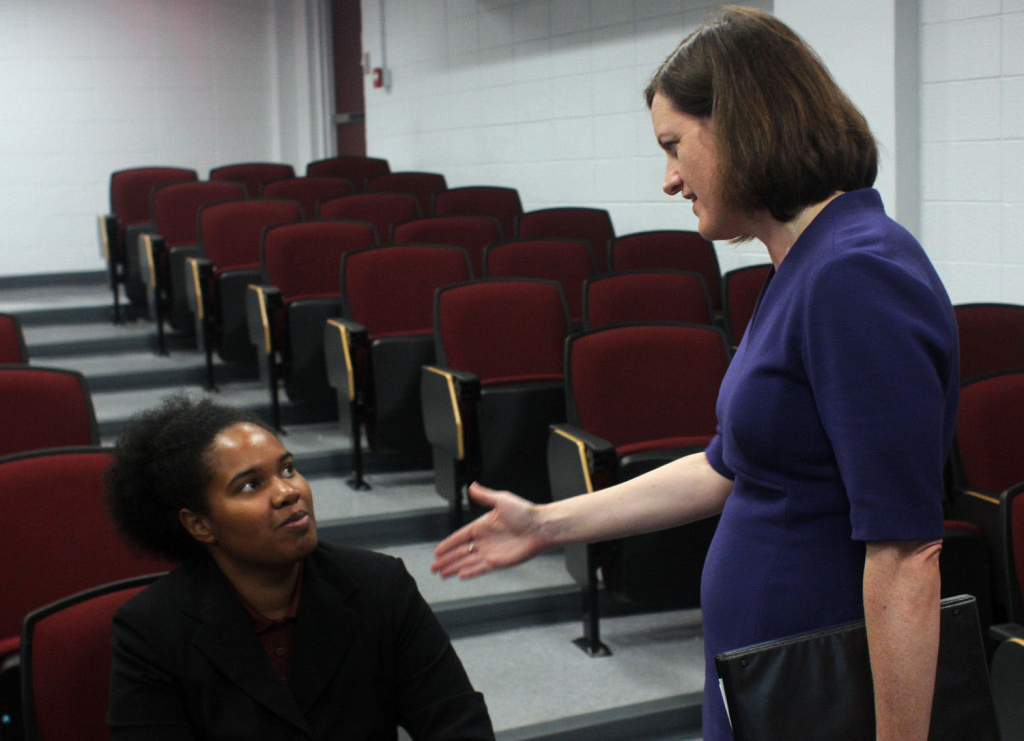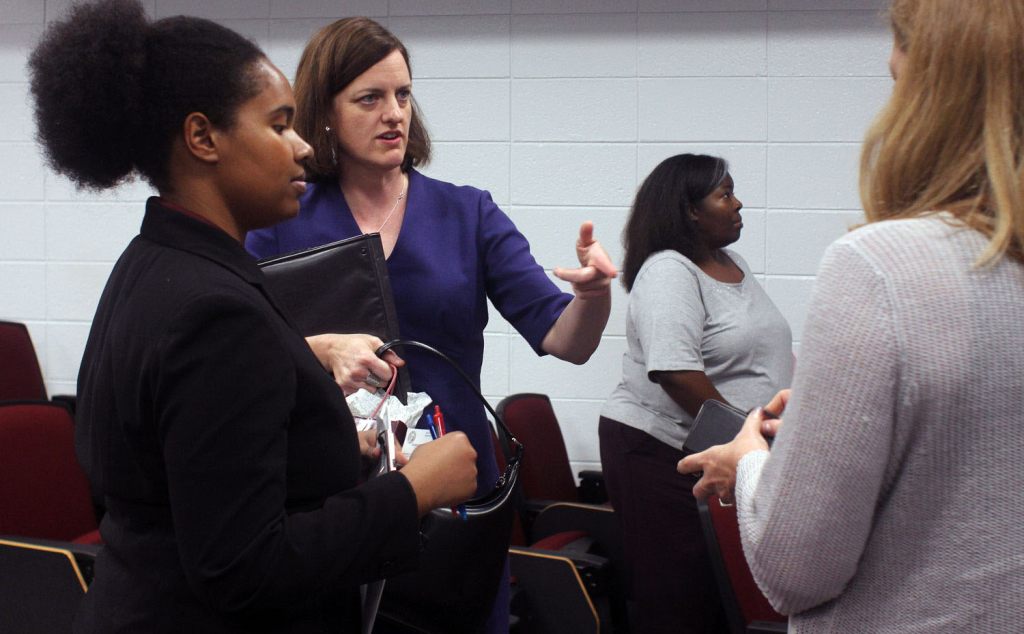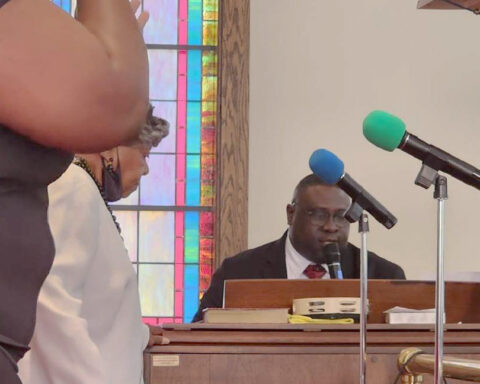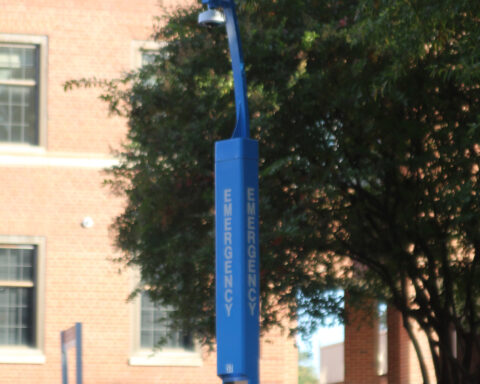You may find these facts surprising: According to an Inceptia survey of college student financial literacy, more than three in four college students reported that they were not prepared to deal with financial challenges. Sixty-seven percent of college freshmen fail a basic financial literacy test. And just 45 percent of college freshmen said they understand that their credit score may affect their ability to get a job.
Startling facts like these motivated North Carolina Treasurer Janet Cowell to engage NCCU students on the importance of money management. Cowell spoke for an hour before a packed crowd on Tuesday in the Hubbard-Totton Auditorium as part of her “Treasurer’s College Finance Tour.”
“I want everybody to know about how to handle money,” Cowell explained. “That’s why we’re partnering with universities all over the state.”
Cowell said that it is more important now than ever before that students educate themselves about handling finances.
“You face a harder challenge in this generation than previously,” she said. “And we just wanted to talk to you about that because you are going to be making a very important set of decisions.”
Sarita Broadway of the College Foundation of North Carolina reinforced the urgency expressed by the treasurer.
“Americans are more in debt today than ever before; the student loan debt average is $27,000,” Broadway said.

Broadway presented students new resources available on the CNFC’s web page. The resources provide students with financial basics for high school and beyond, Broadway explained.
“We want students to be able to manage their money effectively,” she said.
On the web page, students can find a budget calculation tool, and complete a financial basics course.
“It’s important for students to access these resources and educate themselves as soon as possible,” Treasurer Cowell said.
“You can start out on the right foot or the wrong foot,” she explained. “So it’s important that students understand how to think about money and get the resources they need.”
According to Cowell, when students are financially healthy, the benefits extend beyond themselves.
“I want you to be successful; it’s good for the state, too,” she said.
Students at the event said they now understand the importance of financial literacy, and that they will utilize the CFNC’s online resources in the future.
“Any opportunity to learn how to save money and save myself years of debt is definitely something that I’m going to utilize,” communications freshman Dwayne McBean said.
Recreation Administration Junior J’Keyah Higgins said that the most important aspect of the event was neither the information nor the online resources.
“I like coming to events like this because I can talk to the speakers,” she explained. “They’re a resource to me, and now I can talk to them on my own time and make connection with them.”
Though Treasurer Cowell spent some of her time highlighting the risks involved in taking on student loan debt, she left students with an optimistic view of higher education.
“I think getting a college degree is the way to go; you just have to make sure you educate yourself and make smart decisions,” Cowell said.


















